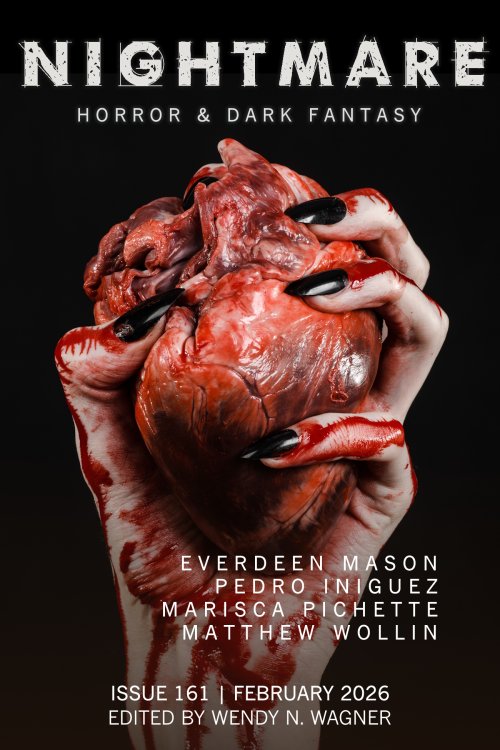First off, I really enjoyed “Beak,” what an excellent story (Side note: I didn’t even know bedbugs had beaks; I just assumed they were proboscises or something)! Let’s get the obvious question out of the way first: Have you ever dealt with bedbugs? I hope it wasn’t as bad as this!
Thank you! I’m glad you enjoyed the story. You’re right that bedbugs don’t actually have “beaks;” like most bloodsucking insects, they have a formidable proboscis. This mouthpart is sometimes referred to as a “beak,” though, because of its sharp, hook-like shape.
I have had two infestations in the past, the first of which came in May ’21, while I was still in COVID lockdown. It began at an inopportune moment for me, since I also had COVID and a fractured arm. I have never felt more like the protagonist of a gothic horror than I did in those days—quarantined in my apartment, clinging to a flashlight with my one useable hand, searching for signs of an invisible infestation. Unlike Nadia, though, I did eventually find the dreaded creatures.
One thing I appreciated about “Beak” is that the situation is presented as an inescapable hellhole defined entirely by bureaucracy, referrals, and capitalism. From the requirement that a live specimen be provided for anything to be done to the lidocaine shortage to the doctors flat out refusing to practice medicine, the absurdity of the whole thing becomes a malignant force. What did you draw from in creating all of these rails keeping Nadia chained to this situation?
Unfortunately, much of this comes from personal experience. Anyone who has rented apartments for long enough likely has a story to tell about a troublesome landlord. While my own landlord did help me deal with the bedbugs, I have discovered that most will do everything in their power to deny that they own an infested property.
I do have a fondness for art that deals with (to borrow your phrasing) the malignant absurdity of bureaucracy. I found Julio Torres’s Problemista to be an especially compelling recent entry in the genre.
When Eleni said that the pain “is everything,” it instantly brought to mind Pinhead for me, but recontextualized to itchiness, the feeling of an itch under a cast that’s impossible to reach dialed past eleven rather than straight pain. Your weaponization of that shared experience is really unnerving; what is it about that sensation that inspired the nightmare of this story?
The bedbug bite is unlike any insect bite I’ve experienced before. You’re covered in these welts, and the cumulative effect of their itching is the inability to concentrate on anything other than that sensation. If horror is about extremity, then this story is about extremity of sensation. What happens to a character who is overcome by itching? What will she do to stop it? What new modes of being become available to her when she gives in to the obliterating totality of the bites?
There’s a complex relationship between pain and pleasure outlined here. It was particularly obvious when Nadia transitions from itching to self-pleasure and, of course, the climax of the story with Eleni’s last “kiss.” The Hellraiser parallels are so much fun to put together, especially since I just realized Eleni lives in the attic, much like a mushy, goopy Frank! What about that franchise, and the thin line between pleasure and pain, compelled you in writing this story?
A terrible admission—I haven’t seen Hellraiser. Barker’s writing, though, is a tremendous influence for me. It’s not only his ability to collapse the line between pleasure and pain, but his knack for placing us in the perspectives of characters undergoing these shifts in embodiment and understanding. For me, the ending of In the Hills, the Cities is a virtuosic display of this skill.
I think that horror often demands that we rethink how and why we create these kinds of distinctions. You point to the dichotomy of pleasure/pain being dissolved in Hellraiser. Much of Jeff VanderMeer’s work is interested in the boundaries between subject/object or self/other. In Shirley Jackson’s stories, we sit in the uneasy spaces between what is sane/insane and social/antisocial. Whenever I’m working on a story, I try to locate these types of distinctions (whether I have brought them in knowingly or not) to see what work I can do in unraveling them.
What do we have to look forward to from you in the future?
I’m currently at work on a novel about the occult in Boston at the turn of the twentieth century. Keep an eye out for spirits, séances, and a hotel with more secrets than it can hide.









